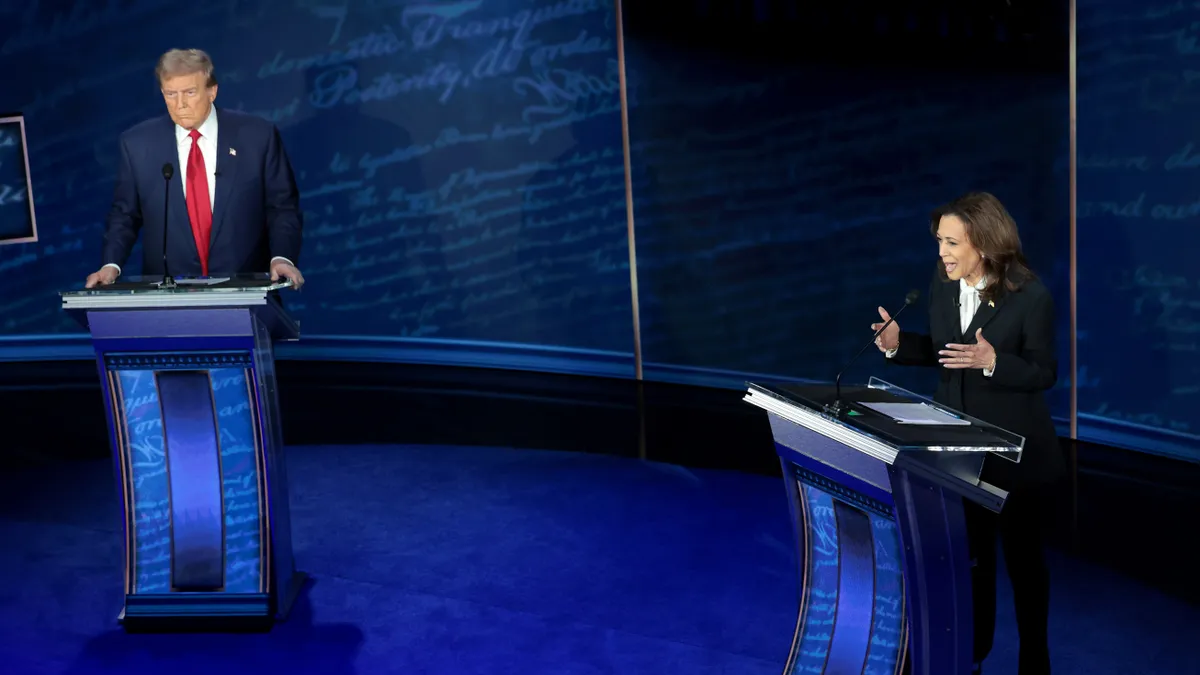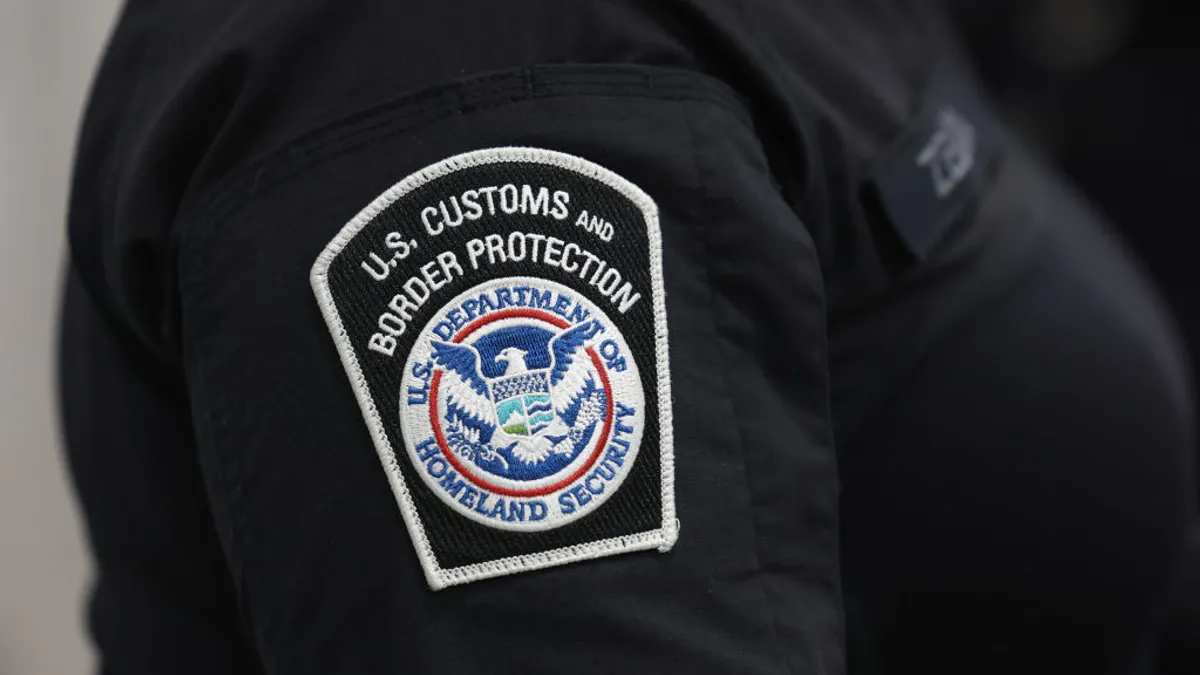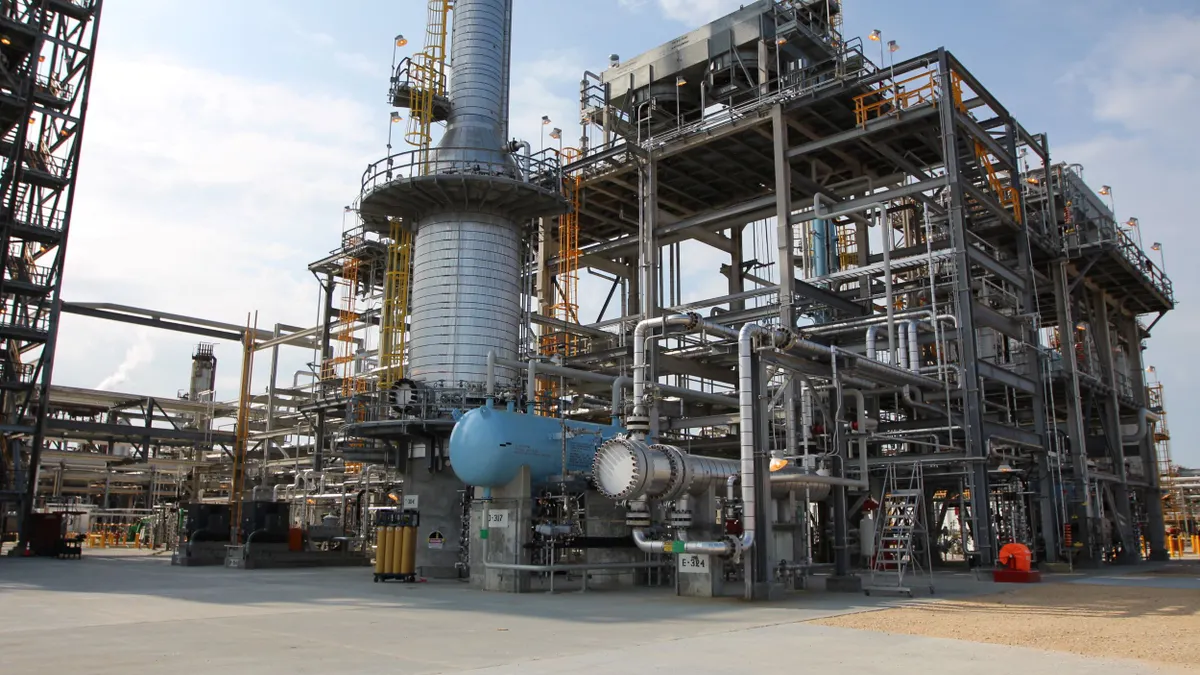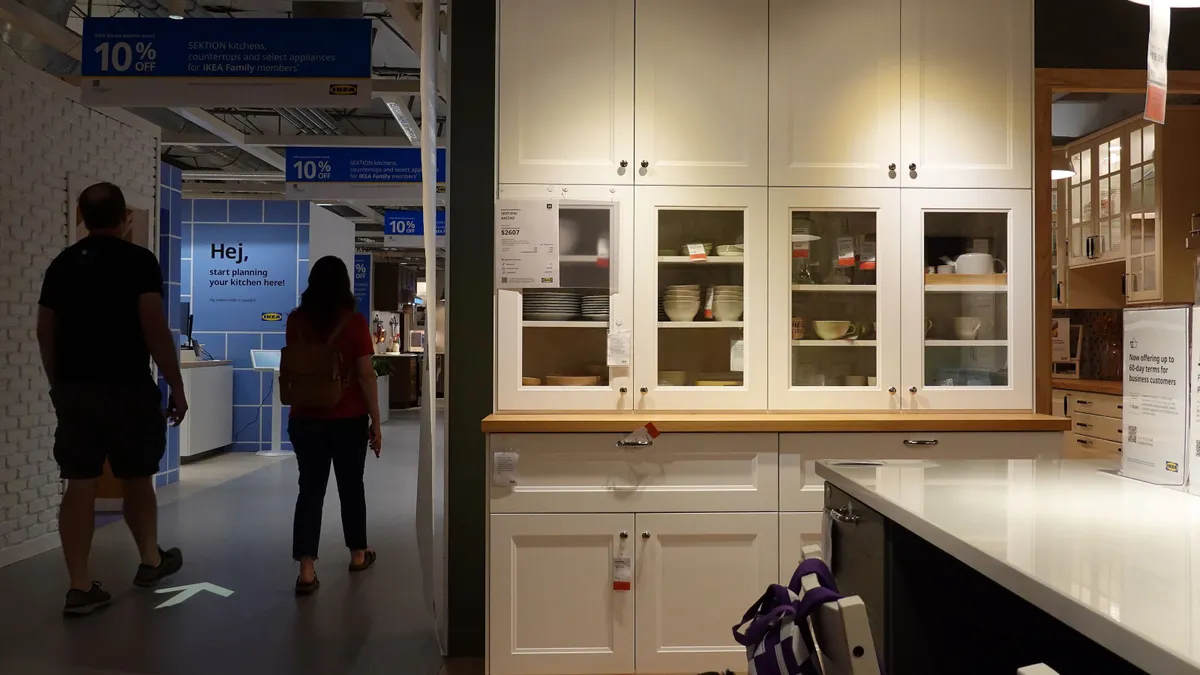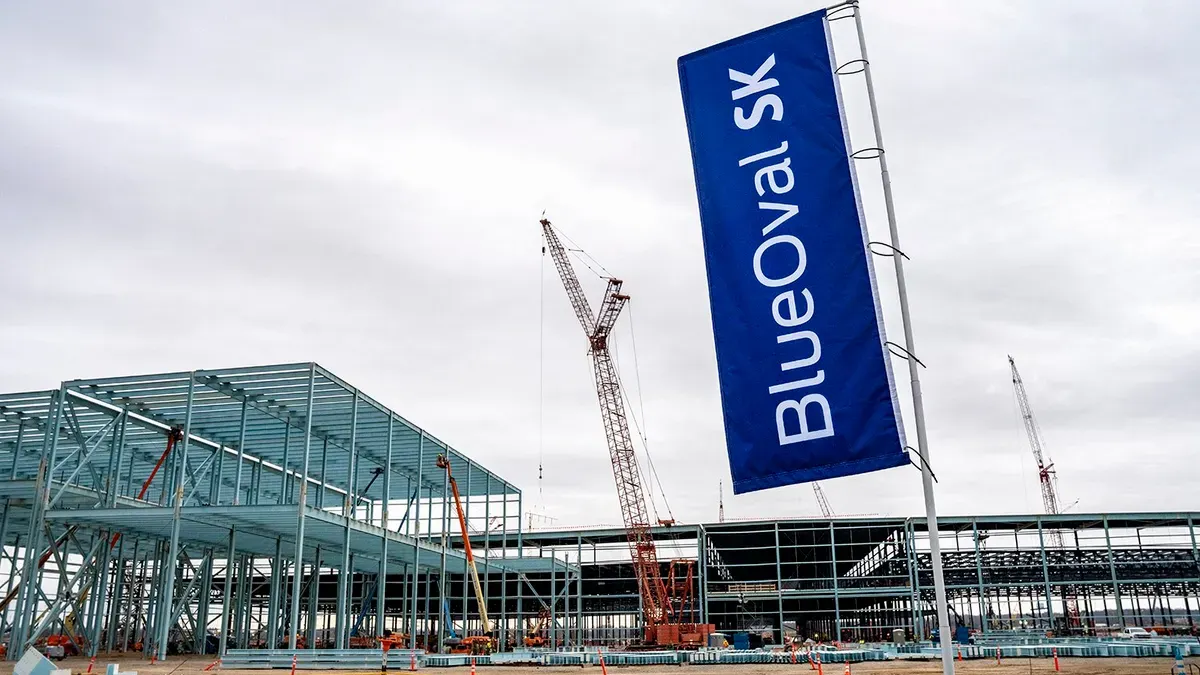Vice President Kamala Harris and former President Donald Trump faced off last night in a presidential debate that touched on how each candidate would boost the economy, protect American trade and create U.S. manufacturing jobs. The debate was the first, and perhaps only, meeting of the two candidates before the Nov. 5 election.
So, what did the they say about their plans for U.S. trade and manufacturing? Here are the highlights from the 90-minute debate hosted by ABC News, which also released a transcript of the event.
Tariffs and trade
In the first minutes of the debate, Trump said he would raise import tariffs:
“We're doing tariffs on other countries. Other countries are going to finally, after 75 years, pay us back for all that we've done for the world.”
When debate moderator David Muir asked Trump if he believes Americans can afford the up to 20% higher tariffs proposed by Trump, the former president said:
"Who's gonna have higher prices is China and all of the countries that have been ripping us off for years. I charge, I was the only president ever China was paying us hundreds of billions of dollars and so were other countries and you know if she doesn't like 'em they should have gone out and they should have immediately cut the tariffs but those tariffs are there three and a half years now under their administration.
We are gonna take in billions of dollars, hundreds of billions of dollars. I had no inflation, virtually no inflation, they had the highest inflation, perhaps in the history of our country."
The average year-over-year inflation rate during the Trump administration was 1.9%. Inflation under the Biden administration peaked at 9.1% in June 2022, but that’s not the highest rate in U.S. history.
In response, Harris criticized the former president’s administration for its trade deficit. The vice president focused less on tariff policies and instead on the need to grow the U.S.'s technological prowess:
"He invited trade wars, you wanna talk about his deal with China what he ended up doing is under Donald Trump's presidency he ended up selling American chips to China to help them improve and modernize their military basically sold us out when a policy about China should be in making sure the United States of America wins the competition for the 21st century.
“Which means focusing on the details of what that requires, focusing on relationships with our allies, focusing on investing in American based technology so that we win the race on A.I. and quantum computing, focusing on what we need to do to support America's workforce, so that we don't end up having the on the short end of the stick in terms of workers' rights."
The Trump administration restricted chip exports to China-based chipmaker Semiconductor Manufacturing International Corporation in addition to putting tariffs on a range of Chinese goods.
The Biden administration has left the tariffs largely in place while also investing heavily in the U.S. semiconductor manufacturing industry. It passed the CHIPS and Science Act in August 2022, allotting $52 billion for domestic chip production and development funding.
Trump chastised the country's lack of chip manufacturing:
"First of all, they bought their chips from Taiwan. We hardly make chips anymore because of philosophies like they have and policies like they have."
The U.S. is currently home to 501 existing semiconductor facilities, according to the Semiconductor Industry Association.
Manufacturing and clean energy
The candidates touched on U.S. manufacturing in the final minutes of the debate.
Harris claimed 800,000 manufacturing jobs have been created under the Biden administration. According to the Bureau of Labor Statistics, roughly 739,000 manufacturing jobs have been created since Biden took office in January 2021, including jobs created during the COVID-19 economic recovery.
The vice president also highlighted the federal investments made in clean energy under the Biden administration:
"I am proud that as vice president over the last four years, we have invested a trillion dollars in a clean energy economy while we have also increased domestic gas production to historic levels.
We have created over 800,000 new manufacturing jobs while I have been vice president. We have invested in clean energy to the point that we are opening up factories around the world. Donald Trump said he was going to create manufacturing jobs. He lost manufacturing jobs."
The Biden administration has not already invested $1 trillion in clean energy, but it did pass the Inflation Reduction Act, which has spurred billions of dollars in both public and private investment.
Goldman Sachs previously estimated that the law could unleash up to $3 trillion in private investment over the next decade, and that public spending on the law could be up to $1.2 trillion.
Trump fired back against Harris' claims of manufacturing job growth, saying the Biden administration had lost thousands of jobs in the past month:
"Let me just tell you, they lost 10,000 manufacturing jobs this last month. It's going — they're all leaving. They're building big auto plants in Mexico. In many cases owned by China. "
The manufacturing industry lost 24,000 jobs in August, according to the Bureau of Labor Statistics.
Auto manufacturing
On one of the country's largest manufacturing sectors, Harris highlighted the importance of bolstering the auto manufacturing industry, including clean vehicle production. The vice president noted that she's been endorsed by the United Auto Workers:
"I'm also proud to have the endorsement of the United Auto Workers and Shawn Fain, who also know that part of building a clean energy economy includes investing in American-made products, American automobiles. It includes growing what we can do around American manufacturing and opening up auto plants, not closing them like what happened under Donald Trump."
Trump responded by doubling down on the importance of tariffs on foreign vehicles sold into the U.S.:
"[China is] building these massive plants [in Mexico], and they think they're going to sell their cars into the United States because of these people. What they have given to China is unbelievable.
But we're not going to let that. We'll put tariffs on those cars so they can't come into our country. Because they will kill the United Auto Workers and any auto worker, whether it's in Detroit or South Carolina or any other place. What they've done to business and manufacturing in this country is horrible.”



